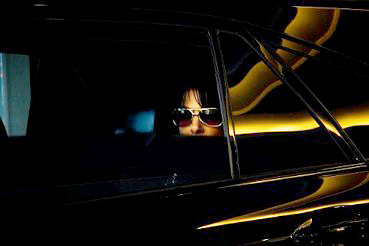
CASE #35: Into the Wild
In the Buddhacarita, the Indian monk Ashvaghosha wrote:
Seeing for the first time the royal highway,
so crowded with respectful citizens,
dressed in clean and dignified clothes,
the prince rejoiced somewhat and thought
he was in some way born again.
But seeing that city as joyous as paradise,
gods residing in the pure realm
created an old man in order to induce
the son of the king to go forth.
BACKGROUND:
Buddhacarita (“The Life of Buddha”) An epic poem written in Sanskrit by the Indian monk Ashvaghosha in the 2nd century C.E. The original consisted of 28 cantos, of which only 14 now remain. This verse occurs in Canto 3, which recounts Prince Siddhartha’s encounter, on three successive days, with an old man, a sick man, and a corpse.
Seeing for the first time Because of a prophecy predicting that Siddhartha would become either a great king or buddha, King Suddhodana tried to ensure the former destiny for his son by surrounding him only with wealth and pleasure. Siddhartha’s trips beyond the palace were therefore choreographed to prevent his witnessing the kinds of ordinary suffering that might inspire him to become a monk. Because it was virtually impossible to prevent these sights from occurring beyond city walls, Siddhartha was allowed outings to various parks, but never into the forest region surrounding the city.
Gods residing in the pure realm In Buddhist scriptures the Indian gods appear as omniscient, all-powerful figures whose primary purpose is to ensure that Shakyamuni fulfills his mission as a “World Teacher.” Here their job is to reveal the truth of human suffering, undermining the vision of a civilized consumer paradise that Suddhodana has been so careful to maintain.
To go forth In ancient times the expression prayātum carried the meaning of “going forth” to become a homeless wanderer. In the Bible, God says to Abraham, Lech lecha! (“Get out!”), an expression which carries essentially the same meaning—leaving the city for the wilderness, relying upon the Earth and/or divine providence to provide for one’s needs. From an historical point of view, such a lifestyle mimics the nomadic, hunter-gatherer way of life that prevailed prior to the Neolithic Revolution. A modern ecological equivalent might be the expression “into the wild.”
COMMENTARY:
Siddhartha is in a limousine with black-tinted windows moving fast through London, Paris, Tokyo, Manhattan, or Madrid. The driver has been told which exhibits he can visit, what clubs he can enter, and which shop windows he may be allowed to peer into. The people on the street look on approvingly. This is everything they want to be. It is as if one mirror were to peer deeply into another, reflecting back and forth 24/7 without end.
This is what a city is—mirrors facing mirrors. Even the gods have a tough time injecting a real body, alive or dead, into this situation. Fortunately, just a mile beyond city limits there are old men, sick men, and dead men aplenty. If only they can get one of each in under the radar, a Buddha will be born.
VERSE:
Like the single blade
Of grass that widens the crack
Between sidewalk slabs,
The dharma doesn’t make nice
With Madison Avenue.
Thank you for subscribing to Tricycle! As a nonprofit, we depend on readers like you to keep Buddhist teachings and practices widely available.